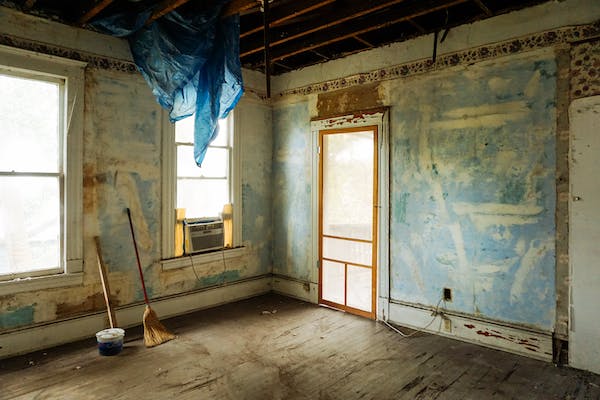Navigating the World of Real Estate: Tips for First-Time Homebuyers
Looking to buy your dream home? As a first-time homebuyer, the world of real estate can be overwhelming. With so many options and factors to consider, it's easy to feel lost in the process. But don't worry! We've got you covered with some expert tips on how to navigate the ever-changing landscape of real estate and make informed decisions that will lead you straight to your dream home. From understanding market trends to finding the right location for your lifestyle, we're here to help you every step of the way. So grab a cup of coffee and let's dive into this exciting journey together!
Introduction to Real Estate
If you're a first-time homebuyer, the world of real estate can seem daunting. Between picking the right property, getting a mortgage, and dealing with inspections and repairs, there's a lot to think about. But with a little research and planning, you can make the process go smoothly.
Here are some tips for first-time homebuyers:
1. Do your research. Before you start looking at properties, it's important to have a good understanding of the housing market and what you can afford. Research prices in different neighborhoods, learn about mortgage options, and get an idea of what type of property you're looking for.
2. Get pre-approved for a mortgage. Once you know how much you can afford to spend on a home, get pre-approved for a mortgage so you'll be ready to make an offer when you find the right property.
3. Work with a real estate agent. A good real estate agent will help you find properties that fit your budget and needs and guide you through the negotiation and purchase process.
4. Get a home inspection. Before finalizing your purchase, it's important to have a professional inspector check out the property to look for any potential problems that could end up costing you money down the road.
5. Make sure your finances are in order. In addition to saving up for a down payment, you'll need to have money set aside for closing costs, repairs,
What to Consider When Buying a Home
There are a lot of things to consider when buying a home. You need to think about your budget, your lifestyle, and your future plans.
One of the most important things to consider is your budget. How much can you afford to spend on a home? You'll need to factor in the cost of the down payment, closing costs, and ongoing costs like property taxes and insurance.
Think about your lifestyle and what you need in a home. Do you need a lot of space or just a few bedrooms? Would you prefer a single-family home or an condo? Consider your commute, schools in the area, and other factors that are important to you.
Think about your future plans. Are you planning on starting a family soon? Do you think you'll want to move again in the next few years? Buying a home is a big investment, so make sure it's one that makes sense for you in the long run.
Financing Your Purchase
Assuming you're not paying cash for your home, you'll need to get a mortgage. Getting a mortgage is a process that can be both exciting and overwhelming, but it's important to remember that you're not alone in this. There are lots of people who have gone through the mortgage process before you, and many of them are more than happy to share their advice and expertise.
The first step in getting a mortgage is to figure out how much you can afford to borrow. This will depend on a number of factors, including your income, your debts, and the current interest rates. Once you have an idea of how much you can afford to borrow, you'll need to start shopping around for lenders. There are a lot of different lenders out there, so it's important to compare rates and terms before making any decisions.
Once you've found a lender that you're comfortable with, it's time to fill out an application. The lender will then pull your credit history and score to see if you're eligible for the loan. If everything looks good, the lender will approve your loan and send you the money.
Now that you have your loan, it's time to start looking for a home. Keep in mind that just because you're approved for a certain amount doesn't mean that's how much you have to spend. Stick to your budget and don't let yourself be swayed by an expensive home that's out of your price range. With some patience and persever
Finding the Right Agent/Broker
If you're looking to buy a home, one of the first steps is finding a real estate agent or broker. But with so many options out there, how do you know which one is right for you?
Here are a few things to keep in mind when searching for an agent or broker:
1. Look for someone with experience. You want someone who knows the ins and outs of the real estate market and can help you find the right home at the right price.
2. Ask for referrals. Talk to friends, family, and co-workers who have recently bought or sold a home and see if they have any recommendations.
3. interview several agents/brokers. Once you've narrowed down your list, meet with each candidate to get a better sense of their personality and whether or not you'll be able to work well together.
4. Check credentials. Make sure your agent or broker is licensed and insured. You can also check their record with the Better Business Bureau (BBB) to see if there have been any complaints filed against them.
5. Get everything in writing. Before working with an agent or broker, be sure to sign a written agreement that outlines their services and fees. This will help protect you in case there are any issues down the road.
Negotiating an Offer
When you find a home you love, it's time to make an offer. This can be a very nerve-wracking process, but if you're prepared, it doesn't have to be. Here are a few tips for negotiating an offer on your first home:
1. Know Your Budget
Before you even start looking at homes, it's important to know how much you can afford to spend. Once you've found a few homes in your price range, you can start thinking about how much you're willing to offer. It's important to stay within your budget so that you're not house poor and struggling to make ends meet every month.
2. Get Pre-Approved for a Mortgage
It's also important to get pre-approved for a mortgage before making an offer on a home. This will give you a better idea of how much money the bank is willing to lend you and will help streamline the negotiation process. Keep in mind that the pre-approval is not final until the loan is approved by underwriting, but it's still a valuable tool in negotiations.
3. Do Your Research on Comparable Sales
When you're ready to make an offer on a home, take some time to research comparable sales in the area first. This will help you determine what similar homes have sold for recently and give you a good starting point for negotiations. The real estate agent representing the seller will likely also have this information,
Closing on the Home
Closing on the home is one of the most exciting—and nerve-wracking—parts of buying a house. But with a little preparation, it can be a smooth process. Here are a few things to keep in mind when you're closing on your new home:
- Get pre-approved for a mortgage before you start shopping for homes. This will give you an idea of how much you can afford and make the home-buying process go more smoothly.
- Once you've found the perfect home, work with your real estate agent to negotiate a fair price.
- Get a home inspection to ensure that the property is in good condition before you finalize the purchase.
- Make sure you have homeowners insurance in place before closing on the home. This will protect your investment in case of any unforeseen damage or accidents.
- Review all of the documents related to the sale carefully before signing anything. If there's anything you don't understand, be sure to ask questions so that you know exactly what you're agreeing to.
By following these tips, you can close on your new home with confidence and ease.
Tips for Maintaining Your New Home
Assuming you've just purchased your first home, congratulations! You're now a part of the American dream. Home ownership comes with a lot of responsibility, but it can also be very rewarding. Here are some tips to help you keep your new home in tip-top shape:
1. Establish a regular cleaning routine. This will help you keep on top of the dirt and grime that can quickly build up in your home.
2. Don't neglect the outdoors. Keep your lawn trimmed and your gutters clean to maintain curb appeal and prevent water damage.
3. Stay on top of repairs. Small problems can quickly turn into big ones if they're not taken care of right away.
4. Make sure your home is properly insulated and weatherized to save on energy costs.
5. Be mindful of your home's security by keeping doors and windows locked when you're not home.
By following these tips, you'll be well on your way to being a happy and successful homeowner!
Alternatives to Buying a Home
If you're not ready to buy a home, there are plenty of alternatives. You could rent an apartment or a house, live in a co-op or a condo, or even become a homeowner through a lease-to-own agreement.
Renting an Apartment: Advantages and Disadvantages
The great thing about renting an apartment is that it's typically cheaper than buying a home, and you don't have to worry about maintenance or repairs. On the downside, you may have to deal with noisy neighbors, and you won't have the freedom to make changes to your living space.
Living in a Co-op or Condo: Advantages and Disadvantages
Co-ops and condos are similar to apartments, but they usually come with more amenities, like pools, gyms, and security systems. The downside is that they can be more expensive than renting an apartment, and you may have to follow certain rules set by the community.
Lease-to-Own Agreements: Advantages and Disadvantages
A lease-to-own agreement is when you agree to rent a property for a set period of time, with the option to buy it at the end of the lease. This can be a good option if you're not sure if you're ready to commit to buying a home, but it's important to note that your monthly payments will be higher than if you were just renting.
Conclusion
Navigating the world of real estate can be a complex and intimidating process, especially for first-time homebuyers. However, with the right guidance and preparation, buying a house doesn't have to be an overwhelming experience. We hope that these tips have provided you with some insight into how to find your dream home without getting overwhelmed or stressed out. With patience and dedication, there's no doubt that you'll soon be able to find the perfect place to call home!






